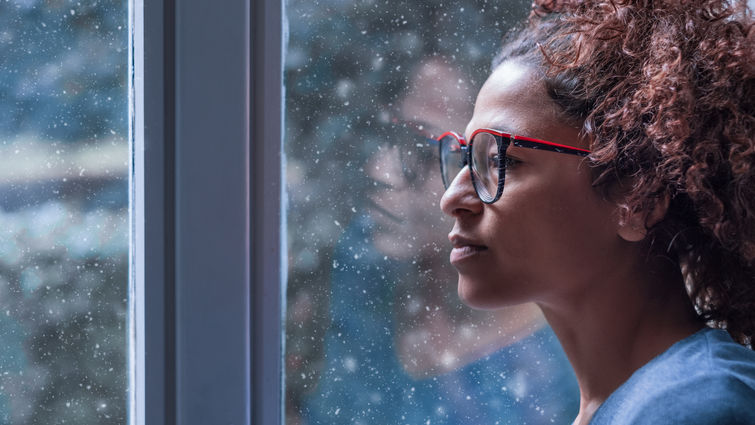
For people who have cancer, have a family member with cancer, or have lost a loved one to cancer, the holidays can be a tough time to endure. The season is often portrayed as a joyous time full of love and celebration. But how can someone celebrate if they are grieving what may be one of the darkest times in their life?
Gabriela E. Gutierrez, PhD, LMFT, a Loma Linda University Cancer Center clinical oncology therapist, visits with patients undergoing treatment for cancer and their families during the holidays and knows firsthand that the holidays can be burdensome. She collaborates with patients and their families in order to co-create a plan that encourages coping with the illness experience together and as a whole.
“Patients often come to me feeling guilty for not feeling like they can enjoy the holidays, or they don’t know how to,” Gutierrez says. “There is also immense pressure for families to seem like a ‘happy family’ due to societal narratives of the holidays. However, I work with my clients to learn to see the season in a new way, which allows them compassion, patience and empowerment during this tough time.”
In addition to feeling the need to be joyous, patients may also be fearful of gathering with family members during the holidays as some family members, although well intended, may centralize conversation around the illness, which can inadvertently further isolate someone in their experience.
To help you or a loved one cope during this time, Gutierrez has these five tips.
- Do not totalize. When cancer hits a member of the family, it is easy to allow the disease to consume conversations that may steal joyous moments. It is important to create boundaries around conversations about the disease so that it is not taking up entire conversations with loved ones during holiday visits. Gutierrez suggests telling a loved one that you appreciate their concern but to not focus on the disease.
- Fight cancer with togetherness. Cancer can cause new limitations for patients that may make them feel as if there are precious things in life that are taken away. However, Gutierrez says she encourages patients to remember that cancer cannot take away togetherness, love, connection, humor and more. She says to allow loved ones to join their fight against cancer by making joyful moments like baking cookies with children, playing a new game, or engage in an activity that creates communion. For children, creating new routines and traditions can exemplify strength and connection despite illness. Children often feel they are playing an active role in fighting illness through these activities.
- Let grieving take its course. If a loved one passed soon before the holidays or around the holidays, allow yourself to grieve. Gutierrez says grieving is a process that is not “one size fits all,” and you may find yourself grieving around the holidays each year. If a patient is grieving the current condition, do not force them to be positive, Gutierrez says. Allowing patients or family members to express sadness or worry often helps someone feel supported, less overwhelmed and proactive about getting better. It also provides a sense of safety and community if we are able to feel allowed to talk about our fears.
- Allow for role shift. As the patient, you may be head of household or the person who is in charge of certain traditions. Gutierrez advises patients to acknowledge new limitations and start new traditions by allowing others to take on those roles. This can relieve pressure on a patient who may feel they need to be that designated person but aren’t able to.
- Create safe spaces and times. Allow yourself to have a “break” from cancer by creating safe spaces and times where the disease is not discussed. Gutierrez says it’s okay to put boundaries around certain times of day, days of the week or rooms in a house where cancer is not allowed to be the primary topic of focus. She wants patients to remember all the other parts of who they are, not what they have — their illness does not define them.
Applying some of these methods may not be so easy without the support of a therapist who understands your journey. If you are interested in therapy services, Loma Linda University Cancer Center can connect you with a partner in your care. To schedule an appointment, call 1-800-78-CANCER (1-800-782-2623).
